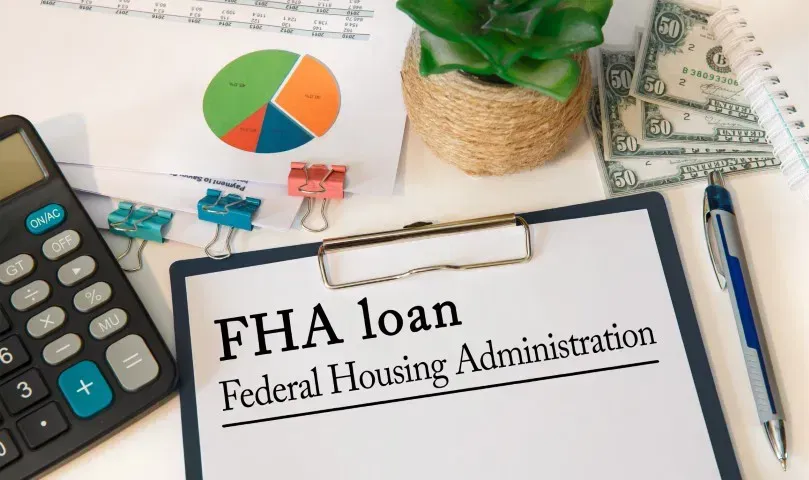The Appraisal Process
From initial consultation to final report, we ensure a thorough and transparent process.
Schedule Your Home Appraisal Today
The Home Appraisal Process: Understanding the Key Steps and Costs of a New Haven Appraisal
If you're looking to get your home appraised, it’s important to understand the appraisal process. Whether you’re buying or selling, knowing what to expect can help you negotiate real estate transactions smoothly. An appraisal is an evaluation conducted by a licensed real estate professional to figure out the property's fair market value. Needing more details? On this page we go into depth about the ins and outs of an appraisal. Below, we look at the appraisal process and tips on getting an accurate appraisal quote.
The Basics of the Appraisal Process
An appraisal is an unbiased estimate of the fair market value of a property. This process is typically initiated by the lender to ensure that the property's value supports the loan amount requested by the borrower. Although the lender orders the appraisal, the borrower usually pays for it. The cost of an appraisal can vary, generally ranging from several hundred dollars, depending on factors like property size, condition, and the level of detail required.
Request a Quote
We will get back to you as soon as possible.
Please try again later.
Getting Your Home Appraised in New Haven
New Haven, affectionately known as Elm City, has a diverse real estate market. To get your home appraised accurately, it's vital to work with a qualified New Haven County real estate appraiser. A professional appraiser should be licensed or certified, as required in all states, and familiar with the local market. They must also be impartial, with no direct or indirect interest in the transaction.
Steps in the Appraisal Process
Step 1: Scheduling the Appraisal
Ordering an appraisal can be initiated in several ways depending upon who is requesting it. If scheduling a personal appraisal in New Haven, you can pick up the phone and dial our office to get started. When dealing with real estate agents and title companies, once an offer is accepted, the lender collects the appraisal fee from the buyer and orders the appraisal through a licensed appraiser network. The appraiser then contacts the listing agent to set up an appointment, usually within a week.
Step 2: During the Appraisal
At the appraisal appointment, which could be as short as 15 minutes or as long as an hour, the appraiser examines the property. They take photos and note any obvious deficiencies. The appraiser takes pictures of anything that affects the value of your home, both inside and outside. This includes photos of rooms to show their condition, special features like built-in entertainment centers, areas needing repairs, and updates like renovations or remodeled areas of the home.
They also photograph the attic and crawlspace, especially for FHA appraisals, to check for issues like fire damage or cracks. Additionally, they capture external factors like nearby factories that could impact the home's value. These photos, along with written documentation, help create a complete and credible appraisal report.
The appraiser uses the Sales Comparison Approach, analyzing comparable homes (comps) that have sold recently, ideally within the past 90 days. This comparison helps determine the current market value of the home. In New Haven, an appraiser might look at various factors such as location, square footage, room count, condition, upgrades, site size, view, and amenities like pools or garages. They gather this data from the Multiple Listing Service (MLS) and tax records.
Step 3: Analyzing the Data
A residential appraiser looks at the sales prices of similar homes in the area, known as comparables or comps, to determine your home's value. They carefully examine how your home differs from these comps in aspects such as condition, upgrades, and features.
For instance, if your home needs repairs or lacks certain features that the comps have, this also impacts the value. After making these adjustments, the appraiser calculates adjusted sales prices for each comparable home. These adjusted prices are then analyzed and averaged to arrive at the final appraised value of your property. This method ensures that the appraisal reflects a fair market value based on the most relevant and recent data available.
Understanding the Appraisal Report
After the appraisal, the appraiser compiles a report using a standardized form.This document details the appraiser's findings and the final appraised value. Below you will find the key elements you can expect to find in a typical home appraisal report and we :

Property Description
Provides details about the location, age, size, and design of the home. The appraiser will assess the property’s overall condition, highlighting any significant defects or issues that may affect its value, such as cracks in the foundation or roof damage.
Market Analysis
Examines the local real estate market. This section typically includes information about recent sale prices of similar properties in the area, helping to provide context for the appraised value.
Comparable Sales
Lists recently sold properties that are similar to the one being appraised. The appraiser will compare the features of these comparable properties, such as square footage, number of bedrooms, and lot size, to determine a fair value for the subject property.
Valuation
Provides an estimated value for the property based on the analysis performed. The appraiser may use different methods to arrive at this valuation, taking into account the property's location, condition, size, and any unique features, like a newly renovated kitchen or a large backyard.
Photos
It includes photos of the property both inside and outside. These images serve to document the property's condition and provide visual evidence of any significant defects noted in the report, such as peeling paint or outdated fixtures.
Additional Documents
It also includes documents such as maps showing the property's location, detailed floor plans illustrating the layout, or zoning information that outlines the property's allowed uses. These documents offer further insight into the property's context and potential.
Appraiser’s Certification
This confirms that the appraisal was conducted in line with industry standards and guidelines. This certification also asserts that the appraiser has no personal interest in the property, has only received compensation for the appraisal itself, and has no conflicts of interest that could affect the appraisal's impartiality.
If the Appraisal Matches or Exceeds the Purchase Price
In most cases, the appraisal will be in the same range as the purchase price, allowing the sale to proceed without issues. For buyers, this means they might be getting a good deal if the appraised value is higher than the purchase price. For sellers, it ensures that there are no appraisal-related hurdles in the loan approval process.
In other words, you’re in a good situation if this happens. It simply means that you’ve agreed to pay the seller less than the home’s market value. Your mortgage amount does not change because the selling price will not increase to meet the appraisal value. This scenario can also provide buyers with immediate equity in the home, which can be beneficial for future refinancing or resale.
If the Value Comes in Below the Purchase Price
When the appraisal value falls below the purchase price, several outcomes are possible: the seller may lower the price to match the appraisal, the buyer can bring extra money to cover the difference, or a combination of both, where the seller reduces the price partially, and the buyer covers the rest.
For instance, if the contract price is $500,000 and the appraisal is $450,000, they might agree on a $475,000 price with the buyer bringing an additional $25,000. Sometimes, the lender can appeal the appraisal if deemed too low, although this may incur extra costs and delays. Rarely, the buyer or seller may cancel the sale, but typically, both parties prefer to find a mutually acceptable solution.
What Sellers Need to Know?
For sellers in New Haven, understanding the impact of appraisals is critical. If recent distress sales have occurred in your neighborhood, it could negatively affect your home's appraisal value. However, if your home is in significantly better condition than nearby distressed properties, you may be able to convince the appraiser to consider these facts in their evaluation.

Special Considerations for VA and FHA Loans
If the appraisal is for a VA or FHA loan, additional requirements must be met. VA appraisals, for example, must comply with Minimum Property Requirements (MPRs) to protect VA borrowers. These standards ensure that essential aspects, like the roof's condition, are adequate. FHA appraisals also include a property inspection to meet the Department of Housing and Urban Development (HUD) standards for health and safety.
Understanding and Getting the Right Price for A New Haven Home
Whether you're buying or selling now, an Elm City appraisal will be a necessary piece of the puzzle. Working with a qualified New Haven County real estate appraiser ensures that you get an accurate assessment of your property's value. By being informed and prepared, you can confidently navigate the real estate market and make decisions that best suit your financial interests.
When you need to get your home appraised in New Haven, remember the importance of selecting a licensed and experienced appraiser. The right professional will help you understand the true value of your property, ensuring a smooth transaction and a fair deal. Whether you're looking to get an appraisal quote or understand the intricacies of the appraisal process, having detailed knowledge is your best asset in the ever-changing real estate landscape of New Haven.

